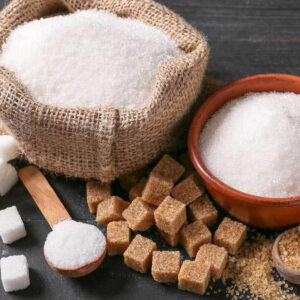The discussion of beet sugar vs cane sugar often includes comparisons of their glycemic index.
The discussion of beet sugar vs cane sugar often includes comparisons of their glycemic index.
Blog Article
Discover the Uses and Benefits of Beet Sugar Vs Cane Sugar in Your Daily Diet Plan
Exploring the unique top qualities of beet and cane sugar exposes greater than just their sweetening capacities; it highlights their distinct influence on health and cookeries. Beet sugar, known for its subtle taste, is typically preferred in delicate treats, whereas cane sugar, with its hint of molasses, adds splendor to durable meals. Each kind holds its own dietary profile and glycemic effects, inviting a much deeper understanding of their roles in a well balanced diet and lasting intake techniques.
Origin and Production Procedures of Beet and Cane Sugar

The unique environments and soil types needed for growing sugar beetroots and sugarcane contribute to differences in their growing techniques and geographic circulation, influencing the economics and sustainability of their manufacturing. beet sugar vs cane sugar.
Nutritional Contrast In Between Beet Sugar and Cane Sugar
Regardless of originating from various plants, beet sugar and cane sugar are nutritionally extremely similar, both mainly being composed of sucrose. Each offers concerning 4 calories per gram, translating to approximately 16 calories per tsp. Structurally, both sugars are composed of around 99.95% sucrose, with very little quantities of other compounds like dampness and trace minerals, which do not dramatically alter their nutritional profiles.

Ultimately, when selecting between beet sugar and cane sugar based on nutritional material alone, both deal the same advantages and downsides as they look at this website are basically kinds of the same particle-- sucrose, providing quick energy without other nutrients.
Effect On Health: Glycemic Index and Caloric Content
Exploring better into the effects of beet sugar and cane sugar on wellness, it is essential to consider their glycemic index and calorie material. The glycemic index (GI) of both beet and cane sugar is around 65, categorizing them as high-GI foods, which can trigger quick spikes in blood sugar levels.
Each kind of sugar includes around 4 calories per gram, making their calorie content matching. For those keeping an eye on caloric consumption, particularly when managing weight or metabolic wellness conditions, recognizing this equivalence is important (beet sugar vs cane sugar). Nonetheless, extreme consumption of any type of high-calorie, high-GI food can add to health and wellness issues such as excessive weight, heart disease, and insulin resistance.
Environmental and Economic Considerations of Sugar Production
Beyond health and wellness effects, the production of beet and cane sugar also elevates considerable environmental and economic concerns. Sugar beet cultivation tends to require cooler climates and has a lower geographical impact contrasted to sugar cane, which grows in exotic areas.
Furthermore, using pesticides and fertilizers in both beet and cane sugar cultivation can lead to dirt destruction and air pollution, more affecting biodiversity and regional water bodies (beet sugar vs cane sugar). The option between cultivating sugar beet or cane often rests on neighborhood ecological problems and economic factors, making the sustainability of sugar production a complex concern
Culinary Applications and Flavor Differences
While the environmental and financial elements of sugar production are indeed substantial, the selection in between beet and cane sugar likewise influences culinary applications and taste accounts. Beet sugar, originated from the sugar beet plant, is recognized for its incredibly neutral taste. This makes it a versatile ingredient in cooking, where it does not alter the taste of other parts. It dissolves quickly and is ideal for usage in cakes, cookies, and pastries.
Cane sugar, removed from sugarcane, commonly keeps molasses traces, which pass on read an unique splendor and deepness. The small variation in moisture web content between beet and cane sugar can influence the structure and uniformity of dishes, making cane sugar his explanation a recommended choice for particular dishes that profit from its distinct residential or commercial properties.

Conclusion
Finally, both beet and cane sugar have distinctive beginnings and production processes, supplying similar dietary accounts with minor differences in sodium content and flavor. While their influence on health, especially concerning glycemic index and calories, is equivalent, the choice between them typically boils down to ecological, economic elements, and specific cooking requirements. Recognizing these elements can direct customers in making notified decisions that align with their wellness goals and taste choices.
Report this page